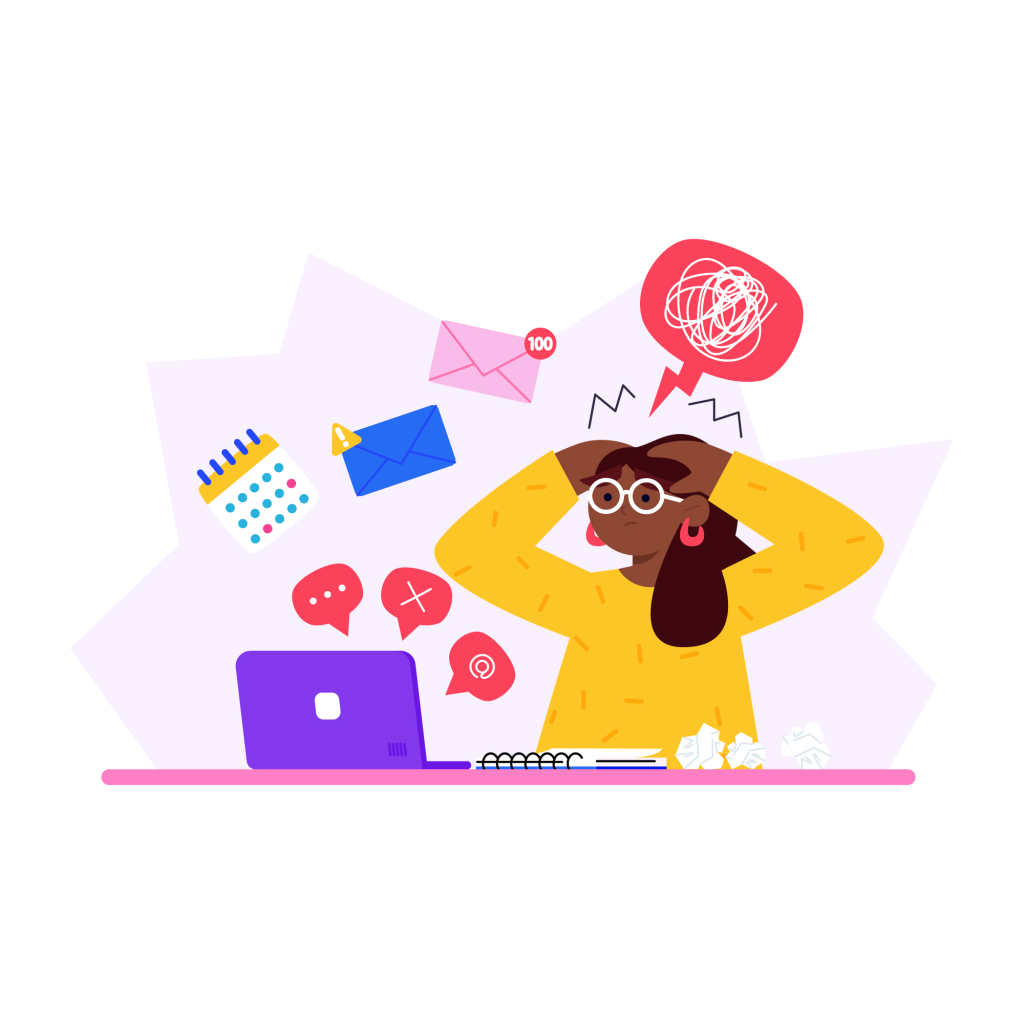Between remote work, streaming, scrolling, and video calls, our lives are increasingly digital. While tech connects us, it also drains us. Digital fatigue is the mental exhaustion that results from overexposure to screens—and it’s becoming a common challenge for many people.
Understanding how it affects your brain and body is the first step toward managing it.

Recognizing the Signs of Digital Fatigue
You might be experiencing digital fatigue if you notice:
- Difficulty concentrating or frequent zoning out
- Eye strain, headaches, or disrupted sleep
- Feeling mentally drained even after simple tasks
- Avoidance of screens despite needing to use them
The symptoms are subtle at first but tend to build over time with prolonged exposure.
Read how screen time impacts your mood and focus.
Why Digital Overload Happens
Digital fatigue isn’t caused by tech alone—it’s about how we use it. Common causes include:
- Constant task-switching between tabs and apps
- Long hours on video calls with little physical movement
- Over-reliance on digital tools without real-life breaks
Over time, this pattern leads to cognitive overload and decreased emotional resilience.
How to Combat Digital Fatigue With Better Habits
To prevent or reduce digital fatigue, try these science-backed strategies:
- Use the 20-20-20 Rule: Every 20 minutes, look at something 20 feet away for 20 seconds
- Schedule screen-free breaks: Step outside, stretch, or do a quick physical activity
- Limit multitasking: Focus on one screen-based task at a time
- Create no-screen zones: Keep phones out of bedrooms or during meals
Explore our sustainable living strategies.
Replace Doomscrolling With Intentional Activities
When your brain craves passive stimulation, it’s easy to fall into endless scrolling. Instead, try:
- Reading a physical book
- Journaling your thoughts
- Going for a short walk or doing breathwork
- Listening to music without a screen
These actions help your nervous system reset and restore.
Build healthier screen-time routines.
Final Thoughts: Balance Digital Use With Real-Life Energy
Digital fatigue isn’t a sign of weakness—it’s a signal your mind needs recovery. By building intentional habits and setting screen boundaries, you can reconnect with focus, energy, and presence.
Your devices aren’t going anywhere, but how you use them can make all the difference.
References:
Harvard Health Publishing (2023) The Mental Toll of Digital Overload. Available at: https://www.health.harvard.edu (Accessed: 12 May 2025).
Psychology Today (2023) Digital Fatigue Is Real—And Here’s How to Recover. Available at: https://www.psychologytoday.com (Accessed: 12 May 2025).
BBC Future (2024) Why Too Much Screen Time Drains You. Available at: https://www.bbc.com/future (Accessed: 12 May 2025).






